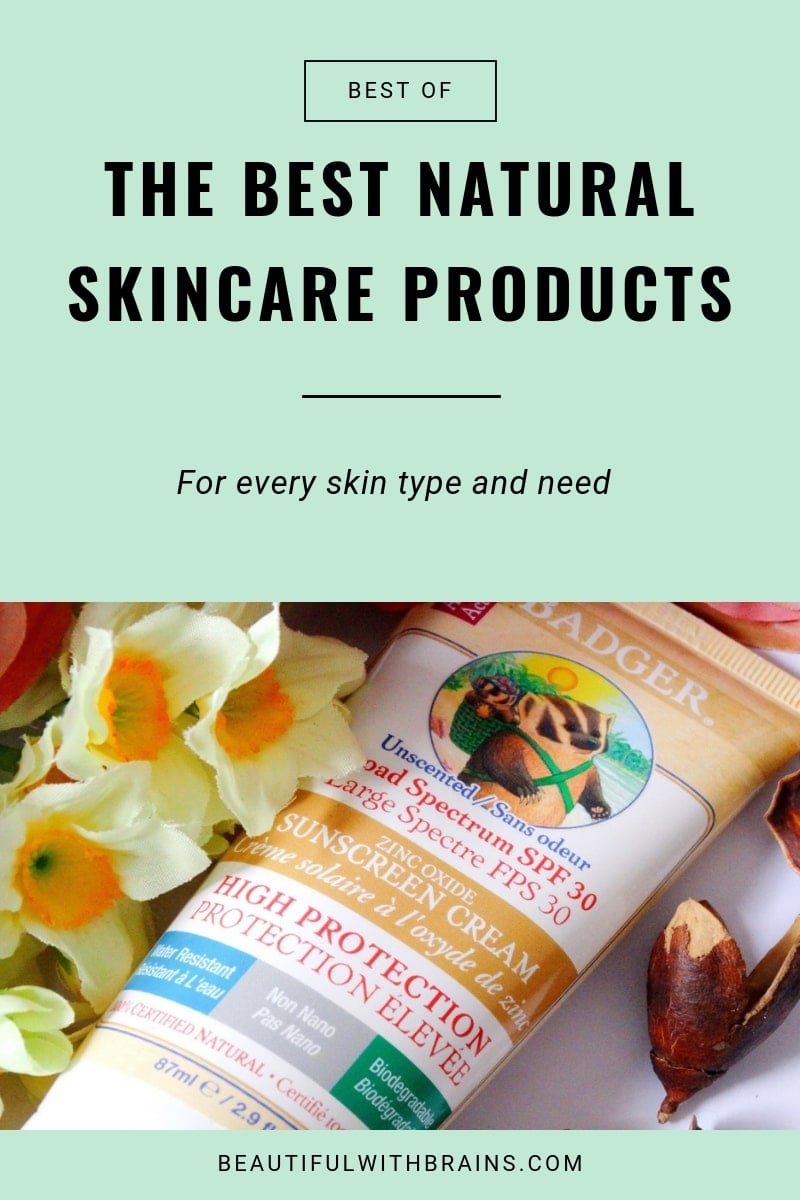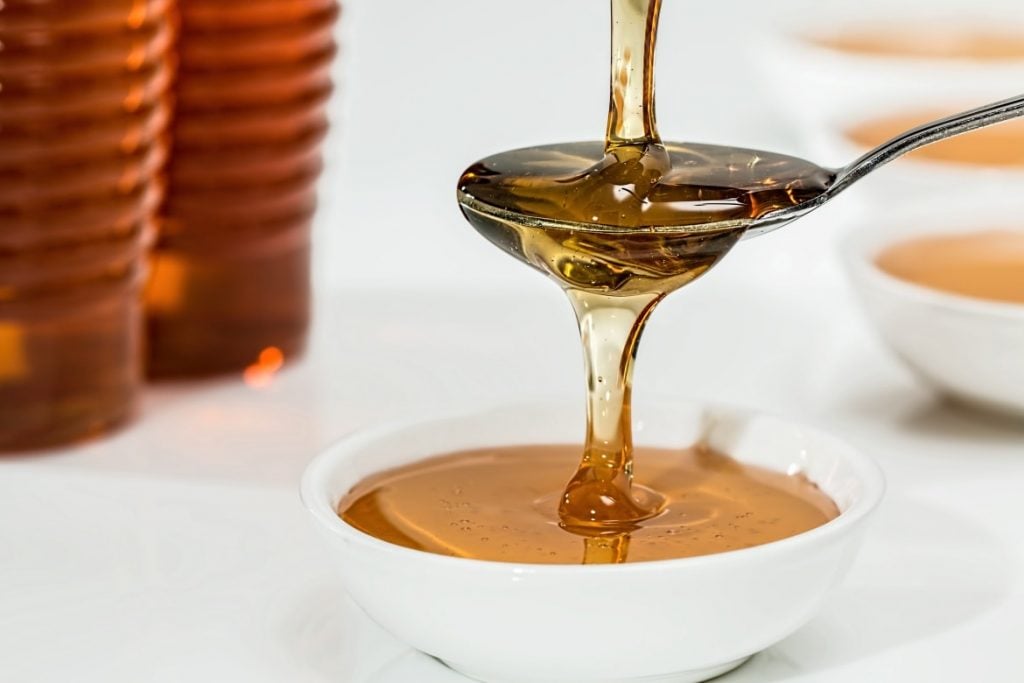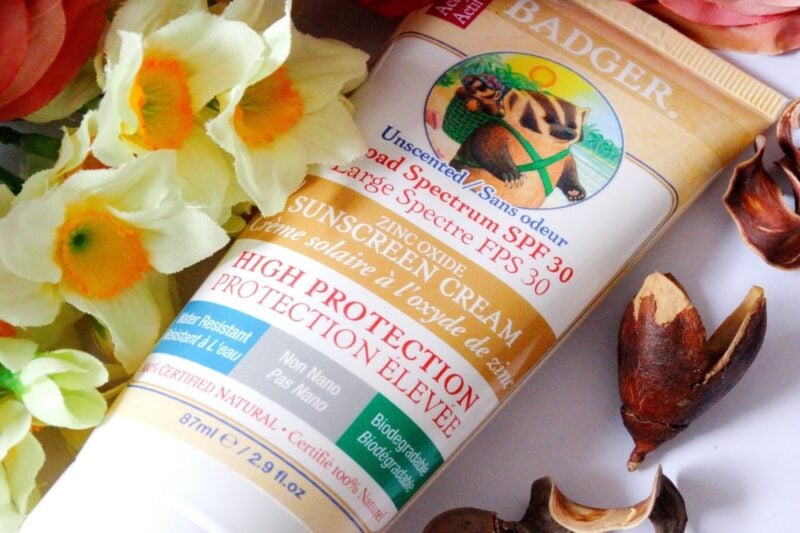
It’s official: I’ll never become an organic skincare fanatic.
I’m a lazy pragmatist: I want skincare products that are both safe AND effective. If their ingredients are derived from plants or made in a lab, it’s 100% irrelevant.
I have better things to do with my time than sifting through thousands of skincare products in search of chemicals that are dangerous only in your imagination (FIY, most chemicals are friendly – yes, really).
What brought on this rant?
Well… Even though I started this blog to set the record straight on what your skincare products really contain and why 90% of them aren’t as dangerous as the mainstream media and scientifically illiterate organic beauty bloggers claim, a lot of you still ask me for natural alternatives that can miraculously get rid of your wrinkles, fade your dark spots and make you coffee, too.
But, I’m not here to judge. I’m here to help. If, after reading the latest scientific research, you still want to go down the all organic route, I’ll help you find the best natural products for your skin. Even if I’m getting a headache in the meantime…
- The Problems With Organic Skincare
- My Criteria
- Best Multitasker: Trilogy Rosehip Oil ($39.00)
- Best For Anti-Aging: Bybi Beauty 1% Bakuchiol Booster ($17.00)
- Best Sunscreen: Badger Balm Unscented Sunscreen SPF30 ($15.99)
- Best Moisturizer For Oily Skin: Andalou Naturals Acai + White Tea Oil-Free Moisturizer ($24.95)
- Best Facial Oil: Mad Hippie Antioxidant Facial Oil ($24.99)
The Problems With Organic Skincare
When I first got the idea of writing a post about the best organic skincare products out there, I knew it wouldn’t be easy. Here’s why:
1. Most Organic Skincare Products Contain Synthetic Ingredients
Don’t get me wrong. These synthetic ingredients aren’t dangerous. But, I guess if you want to go down the organic route, you’d rather not seem them on the label.
Related: Why Chemical-Free Skincare Is A Lie
2. Most Organic Skincare Products Are Full Of Irritants
Most people don’t realise that plants are made up of tens of thousands of different substances. Some of these compounds are beneficial for your skin but others are irritating as hell.
Breaking news: ALL plants contain toxins to protect themselves from predators.
Some plants are more toxic and irritating than others. Essential oils, such as geranium and anything citrusy, are the worst culprits. Yet, people happily slather them on their skin but make a fuss about mineral oil, even though ALL its toxic impurities have been safely removed. Go figure.
A lot of you may be happy to use them anyway, but I can’t in all conscience recommend them. Especially to those of you who have sensitive skin or acne.
Remember: natural DOESN’T equal safe.
Related: 3 Ways To Spot Greenwashing In Skincare
Want to know what ingredients you really need to avoid in your skincare products? Sign up to the newsletter below to receive the “Skincare Ingredients To Avoid” cheatsheet:
3. Natural/Organic Products Aren’t Regulated In Any Way
I think it’s pretty safe to say that olive oil is natural and mineral oil isn’t. But, what about vitamin C, for example?
Yes, when you eat an orange, you’re getting a natural dose of vitamin C. But, do you really think the vitamin C in your organic skincare products comes from oranges? Of course not. It’s made by men. In a lab. So, is making vitamin C synthetically ok but making mineral oil the same way will suddenly kill you?
And what about antioxidants like resveratrol? It’s naturally found in grapes, but how do you think it’s taken out of there and put in your skincare products?
When you start to dig deeper, organic ingredients are often synthetically processed, too. Where do you draw the line?
Related: What Makes A Skincare Ingredient Better Than Another?

My Criteria
I didn’t mean to turn this post into a rant. I just wanted to show you how complicated going down the all natural route is. Every time I picked up a product, there was something in there that shouldn’t have been!
I wanted all the products in this list to be as natural as possible. That’s why most of them are oils or chockfull of oils. If you’re looking for a natural way to moisturize skin, you have to use oils or butters. If you have oily skin, that makes finding the right organic skincare products all the more harder.
I also kept the antioxidants. Even the most purist of organic fanatics don’t see anything wrong in using their synthetic versions. They work. They’re safe. Why keep them out?
A few of the products have the odd synthetic ingredient or preservatives. I mean, I HAD to have some products on this list.
Without further ado, here are the best organic products out there:
Best Multitasker: Trilogy Rosehip Oil ($39.00)
If you pointed a gun to my head and forced me to choose only one organic product for the rest of my life, it’d be rosehip oil (not necessarily from Trilogy but I had to choose one for this post and Trilogy Rosehip Oil is as good as any). Rosehip oil is a natural source of vitamin A, an antiaging superstar that boosts collagen production, fights free radicals and accelerates cellular turnover – 3 things that prevent and treat wrinkles. Plus, vitamin A helps keep acne and pimples at bay, too. That’s not enough. Rosehip oil also contains more antioxidants, like vitamin E, and moisturizing acids, such as linoleic acid. In a nutshell, it does it all.
Available at: Feel Unique and Look Fantastic
Related: Why Rosehip Oil Is My Go-To For Any Skin Woe
Best For Anti-Aging: Bybi Beauty 1% Bakuchiol Booster ($17.00)
I’m sure you’ve heard Bakuchiol is a natural alternative to retinol. Rumour has it, it fights wrinkles just as well, but without its irritating side effects. The truth is a little different. Studies show that, just like retinol, Bakuchiol boosts the production of collagen and downregulates MMP (the enzyme that destroys collagen). More collagen = firmer skin. But research on it is just as the beginning and we don’t know if it can totally replace retinol, yet. Still, if you want to go down a more natural route, this is your best bet. I like Bybi Beauty 1% Bakuchiol Booster because it has only two ingredients: bakuchiol (duh!) and squalane, one of the few moisturising oils that’s not comedogenic.
Available at: Content, Credo Beauty, and Feel Unique
Related: What Are The Best Facial Oils For Oily Skin?

Best Sunscreen: Badger Balm Unscented Sunscreen SPF30 ($15.99)
Ok, Badger Balm Unscented Sunscreen SPF 30 is THICK. Like, really, really THICK. That’s what you get when you use an all natural sunscreen. It contains only zinc oxide and a handful of botanic extracts and oils. Zinc oxide is to blame for the thickness but, imo, it’s worth it: it protects, on its own, from the entire UV range. It’s super gentle, too. Even people with sensitive skin can usually slather it all over their bodies without any problems. If you’re worried about the white cast it leaves behind, go with the tinted version.
Available at: Iherb
Related: 3 Reasons Why Mineral Sunscreen Is Better For Sensitive Skin
Best Moisturizer For Oily Skin: Andalou Naturals Acai + White Tea Oil-Free Moisturizer ($24.95)
If you have oily skin, you know how hard it is to find a natural moisturizer that doesn’t contain any traces of oil. Andalou Naturals Acai + White Tea Oil-Free Moisturiser is it. It uses aloe vera juice and vegetable glycerin to hydrate the skin and a bunch of natural antioxidants, including white tea and kombucha tea extracts to prevent wrinkles. Bonus points: these tea extracts soothe the irritation caused by sun damage. Just ignore the stem cells claims. Stem cells in skincare are just glorified antioxidants.
Available at: iHerb
Related: The Truth About Stem Cells In Skincare: Do They Really Work?
Best Facial Oil: Mad Hippie Antioxidant Facial Oil ($24.99)
Facial oils are a great way to naturally moisturize dry skin. Mad Hippie Antioxidant Facial Oil contains a bunch of non-fragrant, natural oils – like Argan and blueberry – that benefit skin in lots of different ways. For starters, they strengthen the skin’s protective barrier to protect skin from harsh temperatures, pollutants, germs, and anything else that tries to harm it. They also deeply moisturise skin, leaving it softer and smoother for the whole day. Like that weren’t enough, they also destroy free radicals, the nasty molecules that give you wrinkles and dark spots.
P.S. Oily skin? It doesn’t matter how amazing this oil is. You shouldn’t use it. Even the best oils can give you breakouts.
Available at: Free People, iHerb, and Ulta
Related: The Complete Guide To Facial Oils
What do you think are the best organic skincare products out there? Share your picks in the comments below.


Fantastic post. My skin is super sensitive, so most natural skincare is a miss for me. Even small amounts of botanicals will make me break out in a rash, or give me a form of allergic acne on my face. It’s getting harder and harder to find products that don’t stick some flower extract in there, even in sunscreen. I’m also allergic to chemical fragrance. Thankfully, there are brands out there like CeraVe that I can use.
Sherry, and to think that natural skincare is deemed a godsend for sensitive skin! Unfortunately, natural sells so those irritating extracts are everywhere now. 🙁 Imo, for sensitive skin there’s nothing better than French skincare. Like Cerave, it sticks to the essentials. )
I LOVE THIS POST!!!! I could not stop lauging at the beginning. I absolutely agree with you and I cannot wait to share this. I do try to do “natural” but I think it´s mostly because I´m not educated enough to know the bad synthetic stuff. And natural is definitely not always better. I´m glad to learn about Badger. I´m surprise that Caudelie didn´t make it on the faceoil list. I´ve definitely used geranium rose essencial oil and it´s acutally very drying (just 2%!) so I would recommend it for oily skin (mixed with a carrier oil base). At the end of the day, if the stuff we use are really that bad for us, we would all have skin falling off our faces… But it´s so true that so many times people would come to me on their high horse and say, “this is natural, you should use it.” and I would look at the ingredients and be like, “ummmm, no, this is synthetic, this is not nature, oh and BP-13, I don´t know what natural ingredient that is..”
P.S. One other thing. I also realized that synthetic sounding names are sometimes the scientific names of natural ingredients. Usually they note the natural names in paranthesis along side the scientific name, but sometimes it can be confusing / misleading.
Barbara, so glad you enjoyed it! I’m so tired of people saying “this is natural so you should use it, that’s synthetic so it’s the devil incarnated.” I understand that cosmetic science can be complex and that turning to Nature seems like a reassuring and safe way to take care of your skin. But, if you don’t take the time to educate yourself, you’re gonna end up with products that don’t do anything at best or that badly irritate your skin at worst. *sighs*
I so love this post. I use so-called organic or natural skin care products. I use them, not because I think they are superior to conventional skin care products, but simply because I like the scent or the packaging, or both, of the ones I use and they happen to be labelled organic or natural. I say “so-called organic or natural” because I have not actually come across any product which I consider truly organic or natural. When I pick up a product, the first thing I look for is preservatives, especially in products with water in them. Someone has to explain to me the irrational fear of preservatives. I also test these first before splashing them all over my face, in the same way I test conventional products. I also ignore unsupported claims. Another thing I don’t understand is the notion that any ingredient that is hard to pronounce is bad (I read this in a blog or two). When someone tells me that “if it’s natural, it’s good”, I respond with a number of poisonous plants.
Anyway, thank you for the suggestions and your efforts to satisfy the request of your “organic/natural” product readers.
JD, there’s nothing wrong with organic skincare, as long as you know what you’re buying. Too many people think they’re getting something that is more effective or safer and that’s often so not true. *sighs*
Amen re preservatives. I never buy anything without them. It’s so dangerous. Especially when it’s natural. Those plants go bad so quickly!
I know I’m late to the party but I totally love your sense of humor and the knowledge in your words.
Ropa, thank you! So glad you enjoy my writing and hope to see you here often.